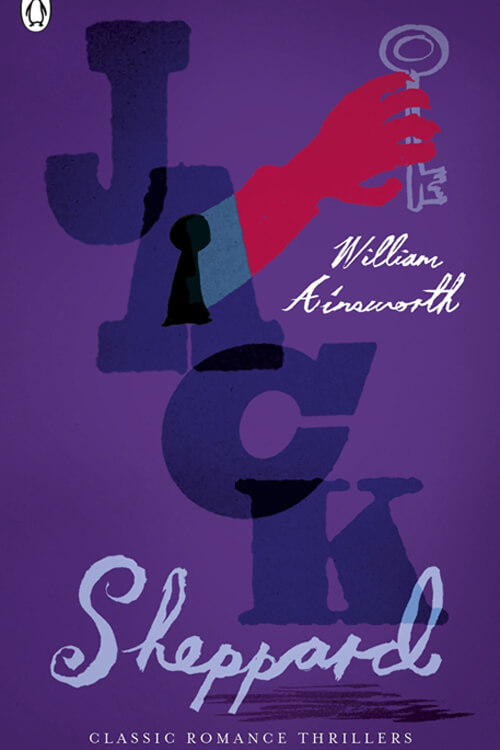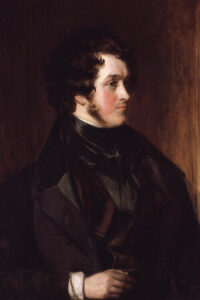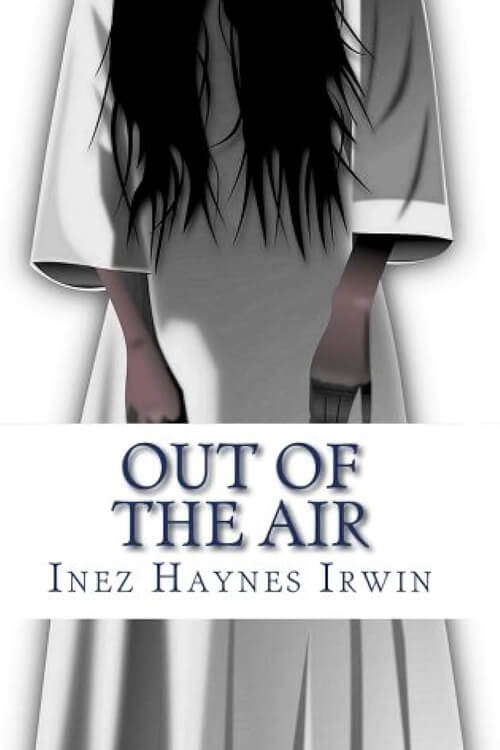
Jack Sheppard A Romance
Immediately behind this individual, came a pale, poverty-stricken woman, whose forlorn aspect contrasted strongly with his plump and comfortable physiognomy. She was dressed in a tattered black stuff gown, discolored by various stains, and intended, it would seem, from the remnants of rusty crape with which it was here and there tricked out, to represent the garb of widowhood, and held in her arms a sleeping infant, swathed in the folds of a linsey-woolsey shawl.
Notwithstanding her emaciation, her features still retained something of a pleasing expression, and might have been termed beautiful, had it not been for that repulsive freshness of lip denoting the habitual dram-drinker; a freshness in her case rendered the more shocking from the almost livid hue of the rest of her complexion. She could not be more than twenty; and though want and other suffering had done the work of time, had wasted her frame, and robbed her cheek of its bloom and roundness, they had not extinguished the luster of her eyes, nor thinned her raven hair. Checking an ominous cough, that, ever and anon, convulsed her lungs, the poor woman addressed a few parting words to her companion, who lingered at the doorway as if he had something on his mind, which he did not very well know how to communicate.
“Well, good night, Mr. Wood,” said she, in the deep, hoarse accents of consumption; “and may God Almighty bless and reward you for your kindness! You were always the best of masters to my poor husband, and now you’ve proved the best of friends to his widow and orphan boy.”
“Poh! Poh! Say no more about it,” rejoined the man hastily. “I’ve done no more than my duty, Mrs. Sheppard, and neither deserve nor desire your thanks. ‘Whoso giveth to the poor lendeth to the Lord;’ that’s my comfort. And such slight relief as I can afford should have been offered earlier if I’d known where you’d taken refuge after your unfortunate husband’s—”
“Execution, you would say, Sir,” added Mrs. Sheppard, with a deep sigh, perceiving that her benefactor hesitated to pronounce the word. “You show more consideration to the feelings of a hempen widow than there is any need to show. I’m used to insult as I am to misfortune and am grown callous to both, but I’m not used to compassion and know not how to take it. My heart would speak if it could, for it is very full.
Read or download Book
William Harrison Ainsworth
William Harrison Ainsworth (4 February 1805 – 3 January 1882) was an English historical novelist born at King Street in Manchester. He trained as a lawyer, but the legal profession held no attraction for him. While completing his legal studies in London he met the publisher John Ebers, at that time manager of the King’s Theatre, Haymarket. Ebers introduced Ainsworth to literary and dramatic circles, and to his daughter, who became Ainsworth’s wife.
Ainsworth briefly tried the publishing business, but soon gave it up and devoted himself to journalism and literature. His first success as a writer came with Rookwood in 1834, which features Dick Turpin as its leading character. A stream of 39 novels followed, the last of which appeared in 1881. Ainsworth died in Reigate on 3 January 1882 and was buried in Kensal Green Cemetery.
Biography
Ainsworth was born on 4 February 1805 in the family house at 21 King Street, Manchester, to Thomas Ainsworth, a prominent Manchester lawyer, and Ann (Harrison) Ainsworth, the daughter of the Rev. Ralph Harrison, the Unitarian minister at Manchester Cross Street Chapel. On 4 October 1806, Ainsworth’s brother, Thomas Gilbert Ainsworth, was born. Although the family home was eventually destroyed, it was a three-story Georgian home in a well-to-do community. The area influenced Ainsworth with its historical and romantic atmosphere, which existed until the community was later replaced by commercial buildings. Besides the community, Ainsworth read romantic works as a child and enjoyed stories dealing with either adventure or supernatural themes. Of these, Dick Turpin was a favorite of Ainsworth. During his childhood, he adopted Jacobite ideas and held Tory ideas in addition to his Jacobite sympathies, even though his community was strict Whig and Nonconformist. During this time, Ainsworth began to write prolifically.
The Ainsworth family moved to Smedly Lane, north of Manchester in Cheetham Hill, in 1811. They kept the old residence in addition to the new one but resided in the new home most of the time. The surrounding hilly country was covered in woods, which allowed Ainsworth and his brother to act out various stories. When not playing, Ainsworth was tutored by his uncle, William Harrison. In March 1817, he was enrolled at Manchester Grammar School, which was described in his novel Mervyn Clitheroe. The work emphasized that his classical education was of good quality but was reinforced with strict discipline and corporal punishment. Ainsworth was a strong student and was popular among his fellow students. His school days were mixed; his time within the school and with his family was calm even though there were struggles within the Manchester community, the Peterloo massacre taking place in 1819. Ainsworth was connected to the event because his uncles joined in protest at the incident, but Ainsworth was able to avoid most of the political after-effects. During that time, he was able to pursue his literary interests and even created his little theatre within the family home at King Street. Along with his friends and brother, he created and acted in many plays throughout 1820.
During the 1820s, Ainsworth began to publish many of his works under the name “Thomas Hall”. The first work, a play called The Rivals, was published on 5 March 1821 in Arliss’s Pocket Magazine. Throughout 1821, the magazine printed seventeen other works of Ainsworth’s under the names “Thomas Hall”, “H A” or “W A”. The genre and forms of the work greatly varied, with one being a claim to have found plays of a 17th-century playwright “William Aynesworthe”, which ended up being his works. This trick was later exposed. In December 1821, Ainsworth submitted his play Venice, or the Fall of the Foscaris to The Edinburgh Magazine. They printed large excerpts from the play before praising Ainsworth as a playwright someone that rivaled even George Gordon Byron. During this time, Ainsworth was also contributing works to The European Magazine in addition to the other magazines, and they published many of his early stories. Eventually, he left Manchester Grammar School in 1822 while constantly contributing to magazines.






